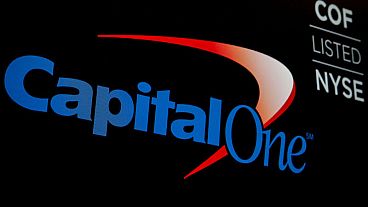By Carl O'Donnell and Tamara Mathias
(Reuters) - Mylan NV's <MYL.O> planned merger with Pfizer Inc's <PFE.N> off-patent branded drugs business may have boosted its share price on Monday, but one of its most pressing problems remains: shortages of its flagship EpiPen emergency allergy treatment.
For the past year, Mylan has been struggling to address an ongoing EpiPen shortage that could potentially worsen as thousands of school children with allergies need to restock EpiPen supplies ahead of the school year.
Now, the planned tie-up will bring together two businesses that have long collaborated on making EpiPens. For years, Pfizer has manufactured EpiPen on Mylan's behalf through its Meridian Medical Technologies unit.
It was not yet clear if the combination will help ease the shortages by simplifying the company's complex manufacturing processes.
Although Meridian will not be merged with Mylan as part of the transaction announced on Monday, the companies were in talks to transfer Meridian to the newly created generics business, a Pfizer spokeswoman said.
The discussions are still ongoing and there is no guarantee that a deal will be reached, but the parties are aiming to reach a final decision before the close of the larger Pfizer-Mylan deal in 2020, Pfizer said.
"We’ve had some conversations with Mylan about that potentially transferring to Mylan as a supplement to the existing transaction, but nothing has been finalised to date yet," Frank D'Amelio, Pfizer's chief financial officer told Reuters.
If the company is transferred to the new Mylan-Pfizer spinoff, it could potentially help streamline a fix to the manufacturing issues that have led to shortages.
“Over the long term, having all EpiPen operations under one unified company would reduce complexity," said Ashtyn Evans, an Edward Jones analyst.
Meridian, which produces all EpiPens sold globally at a single plant near St. Louis, has been hit by a series of manufacturing problems since at least 2018 that resulted in shortages in the United States and elsewhere. The company said in early July it anticipates further supply shortages over the coming months.
Canada's national health agency said earlier this month it continued to experience EpiPen shortages as well.
Mylan, a generic drugmaker that came under fire from mothers and politicians over steep EpiPen price hikes, has been facing new competition for its emergency allergy treatment.
Teva Pharmaceuticals Industries <TEVA.TA> has launched its own EpiPen generic, and other companies including Novartis AG <NOVN.S>, Kaleo Inc and Amneal Pharmaceuticals Inc <AMRX.N> also are in the market with rival products.
(Reporting by Carl O'Donnell and Tamara Manias in Bengalaru; editing by Marguerita Choy and Bill Berkrot)



